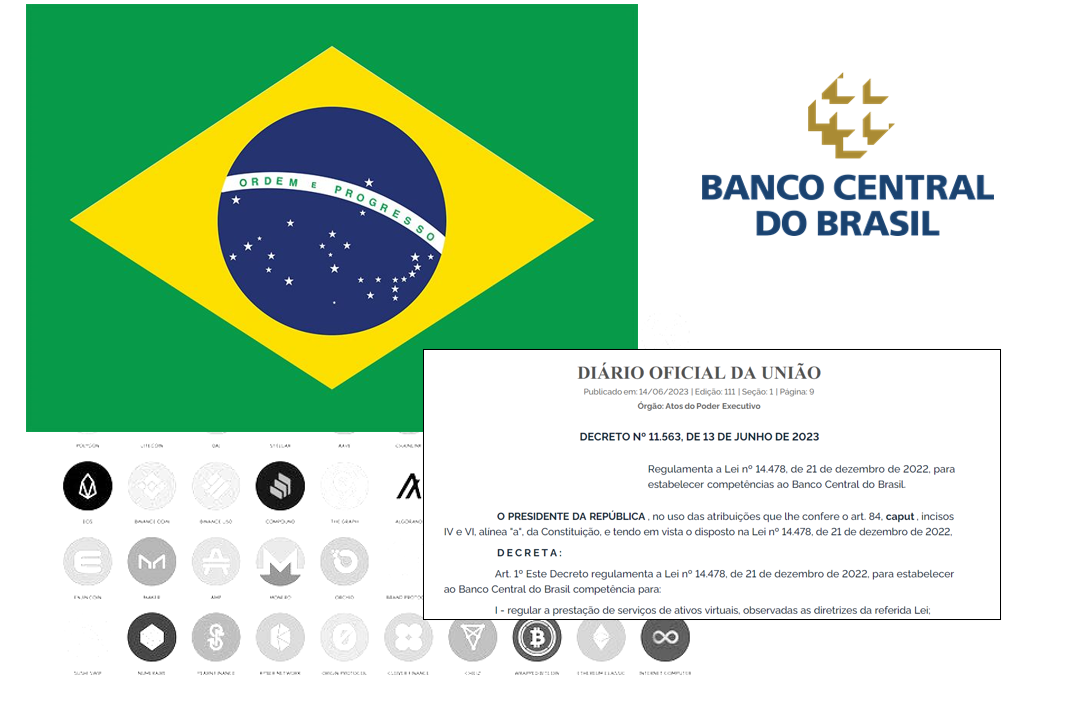
The cryptocurrency market in Brazil just keeps getting safer.
Last November, the Brazilian Congress swiftly approved a law regarding crypto assets in the aftermath of the FTX collapse. Signed by the former president just a few days before leaving office, it unfortunately left some important issues out.
The most crucial of these being which governmental body gets to act as the 'market xerif'.
Seven months later, on June 13, a decree regulating the law’s execution was published, giving the Central Bank of Brazil (BCB) the power to oversee the cryptocurrency market while attributing to the Securities Exchange Commission (SEC) the role of regulating those crypto assets that are considered to be securities.
From now on, it will be upon the Central Bank to authorize companies to operate legally in the country, define guidelines for positions of control within these companies, and decide who and under which conditions people get to occupy management positions.
The final decree, which enters into force on June 20, was signed by Brazilian President Luiz Inácio Lula da Silva, Minister of Economy Fernando Haddad, and BCB president Roberto Campos Neto.
The Brazilian crypto market saw a few months of uncertainty after Lula came back into office. Despite pledging to give stability to the country, the new government undid several measures taken by former president Jair Bolsonaro. The Workers’ Party of Brazil (PT) honorary leader even lashed out against the Central Bank’s recently instituted independence.
But despite having contrasting opinions on most matters, Bolsonaro and Lula see eye-to-eye on one critical issue - Brazilians must be kept safe.
In 2019, a study by the Business Administration School of São Paulo concluded that 40% of cryptocurrency holders in the country earned less than the minimum wage.
One year after this data was gathered, the pandemic and a profound economic crisis descended upon the largest country in Latin America, severely affecting living conditions and increasing the number of people looking to earn extra income through investment in cryptocurrency.
Supporting crypto adoption means keeping income-seeking opportunities open while market regulation protects financially fragile consumers. Lula, a former metalworker, and now third-time president of Brazil, made his name as a president of the people and could go no other way but forward with the pro-crypto policy.
Besides decree 11.563, the recently elected government has been giving away digital payment licenses to crypto exchanges and crypto payment providers. On May 19, Latam Gateway, Binance’s payment processor partner in Brazil, was authorised as an electronic money issuer. This month, it was time for Mercado Bitcoin, the country’s biggest crypto asset exchange, to receive licensing.
Yet Lula has one more reason for supporting crypto adoption, and one that Bolsonaro was entirely against - decreasing the country’s dependency on the dollar.
As soon as Lula da Silva took office, he flew to Buenos Aires, where he met Argentina’s President, Alberto Fernandez.
Together the leaders announced a new pan-Latin American currency, The Sur, which is being developed to create a suitably strong means of exchange to trade in and outside the region, without using U.S. currency.
The U.S. has been using the power of its currency and military to dictate the economic future of Latin America ever since the end of the Second World War. When in power during his first two mandates, between 2003 and 2010, Lula da Silva fought hard to overcome this dependency.
Again at the driver’s seat of Brazil, his quest continues, and it seems to have found in cryptocurrency a powerful mechanism of combat.
For the sake of keeping the sovereignty of the dollar as the primary international currency, the U.S., through its own SEC, is doing everything in its power to destroy the crypto market within its borders.
Meanwhile, Brazil drives further in the opposite direction by increasing regulation and oversight, making digital payments widely and readily available, defining the legal limits of decentralized finance, launching Real Digital, the country’s digital currency, and developing a Latin America-wide means of exchange.

